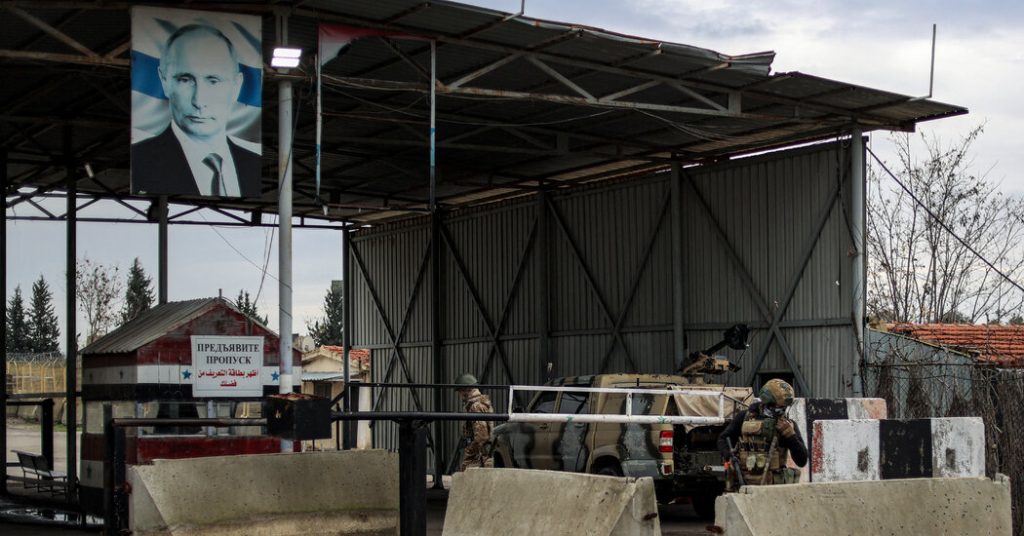The fall of Bashar al-Assad’s regime in Syria after a nearly 14-year war has ushered in a new era of geopolitical maneuvering in the Middle East. Russia, a key ally of Assad and instrumental in his brutal suppression of the rebellion, now faces the challenge of securing its military presence in a Syria led by a new interim government headed by Ahmed al-Shara, a former rebel leader. Initial talks between Moscow and Damascus have highlighted the complex and potentially protracted negotiations that lie ahead. Al-Shara, while emphasizing the need for Russia to acknowledge its past actions and compensate for the destruction caused, has also expressed a surprising willingness to cooperate with Moscow, recognizing the long-standing strategic relationship between the two countries and Syria’s reliance on Russian expertise and military support. This pragmatism reflects the new Syrian leadership’s desperate need for legitimacy, international support, and assistance in rebuilding the war-torn nation.
The initial meeting between the Russian delegation and al-Shara served as a platform for setting the stage for future negotiations. Al-Shara insisted on addressing past grievances, demanding compensation for the widespread destruction caused by Russian airstrikes and even calling for the extradition of Assad and his associates to face justice. This demand, while unlikely to be met by Russia, underscores the complex relationship between the two countries and the delicate balance the new Syrian leadership must strike between acknowledging past atrocities and securing future cooperation. Russia, represented by Deputy Foreign Minister Mikhail Bogdanov, has avoided definitive commitments, adopting a wait-and-see approach as the international community, including the United States, European Union, Turkey, and Saudi Arabia, engages with the new Syrian leadership. The outcome of these international interactions will likely influence Russia’s future role in Syria.
Russia’s primary objective is to maintain its military presence in Syria, particularly its naval base in Tartus and the Hmeimim Air Base near Latakia. These bases are strategically important for Russia’s regional influence and power projection, particularly in the Mediterranean and Africa. While the new Syrian authorities have not explicitly rejected Russia’s continued presence, the final decision remains uncertain. The pragmatic stance adopted by both sides suggests a mutual understanding of the benefits of delaying a final decision. Russia can project an image of stability and continued engagement, while Syria can leverage the ongoing negotiations to secure sanctions relief and international aid.
Interestingly, despite years of supporting Assad, Russia has portrayed the change in leadership as a victory, claiming to have prevented Syria from becoming a terrorist haven. President Putin has emphasized Russia’s willingness to continue its presence in Syria only if its interests align with those of the new government. This adaptable approach underscores Russia’s opportunistic nature, pivoting from staunchly supporting the Assad regime to cautiously engaging with its successor. This calculated pragmatism reflects Russia’s determination to maintain its influence in the region, irrespective of the specific leadership in Damascus.
Al-Shara’s own background as a former rebel fighter adds another layer of complexity to the situation. His willingness to engage with former adversaries, including the United States, demonstrates his focus on securing stability and rebuilding Syria. He has met with US officials, despite his past imprisonment by US forces and previous designation as a terrorist. This meeting led to the US withdrawing the bounty placed on him, highlighting the shifting alliances and pragmatic considerations driving the current geopolitical landscape. Al-Shara’s priority is securing sanctions relief and international aid, crucial for Syria’s economic recovery.
The future of the Russian bases in Syria will depend on a delicate interplay of factors, including the demands of the international community, the evolving relationship between Moscow and Damascus, and the internal dynamics within Syria. The extradition demand for Assad presents a significant hurdle, highlighting the atrocities committed during the war and the need for accountability. However, the pragmatic approach adopted by both sides suggests a willingness to negotiate and find common ground, prioritizing stability and reconstruction over dwelling on past grievances. While the loss of its Syrian bases would be a setback for Russia, the Kremlin is exploring alternative options in the region, including potential bases in Libya. The ultimate outcome of these negotiations will significantly impact the future geopolitical landscape of the Middle East.
The ongoing negotiations in Syria exemplify the fluidity of international relations in the wake of protracted conflict. The pragmatic approach adopted by both Russia and the new Syrian leadership underscores the prioritization of national interests and the need for stability. The demands for accountability and compensation for past atrocities represent an important step towards acknowledging the human cost of the conflict. The outcome of these complex negotiations will shape the future of Syria and its relationship with Russia, with wider implications for regional stability and the balance of power in the Middle East. As the international community engages with the new Syrian leadership, the evolving dynamics will continue to reshape the geopolitical landscape, with the ultimate outcome remaining uncertain amidst the ongoing efforts to rebuild a nation devastated by war.


